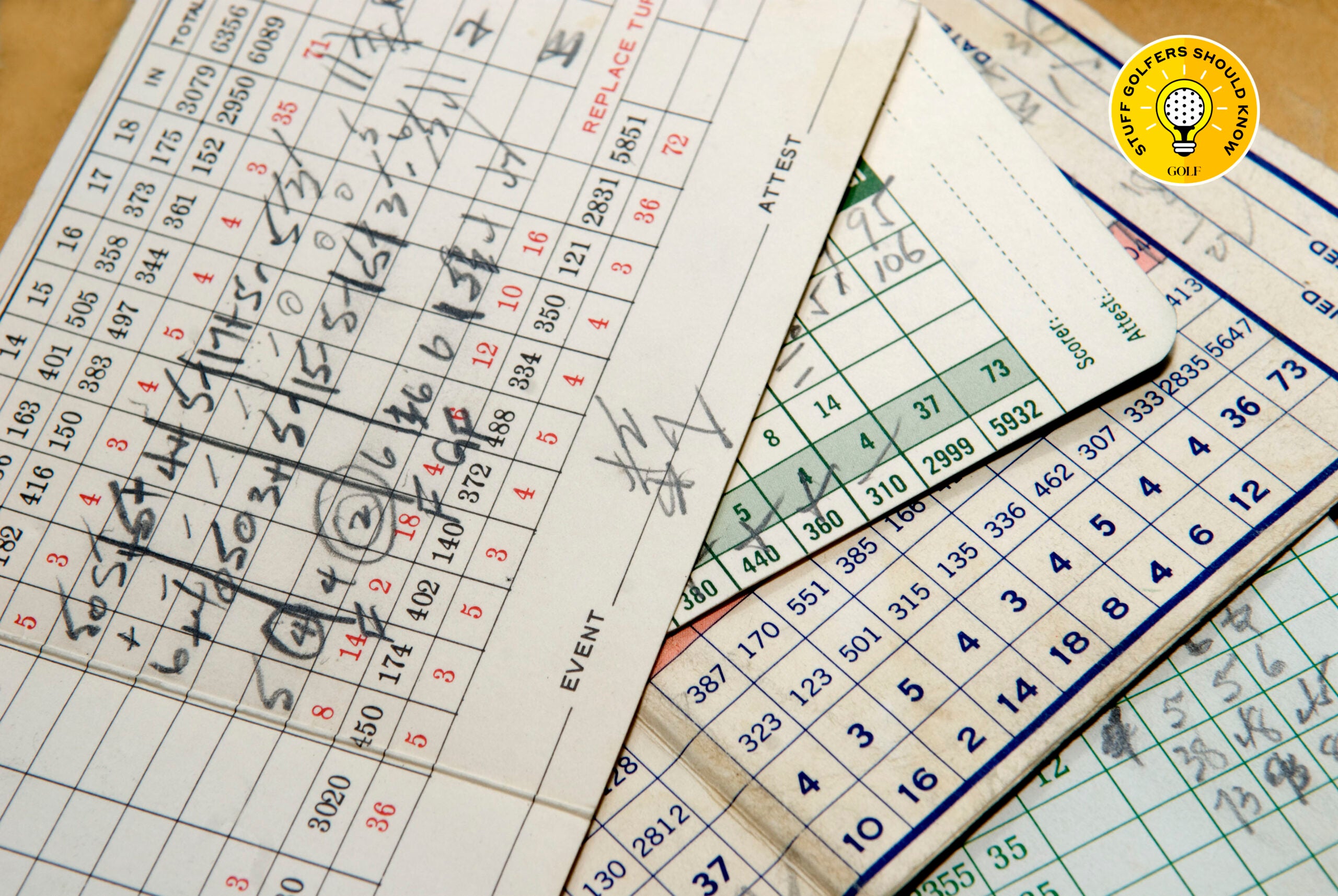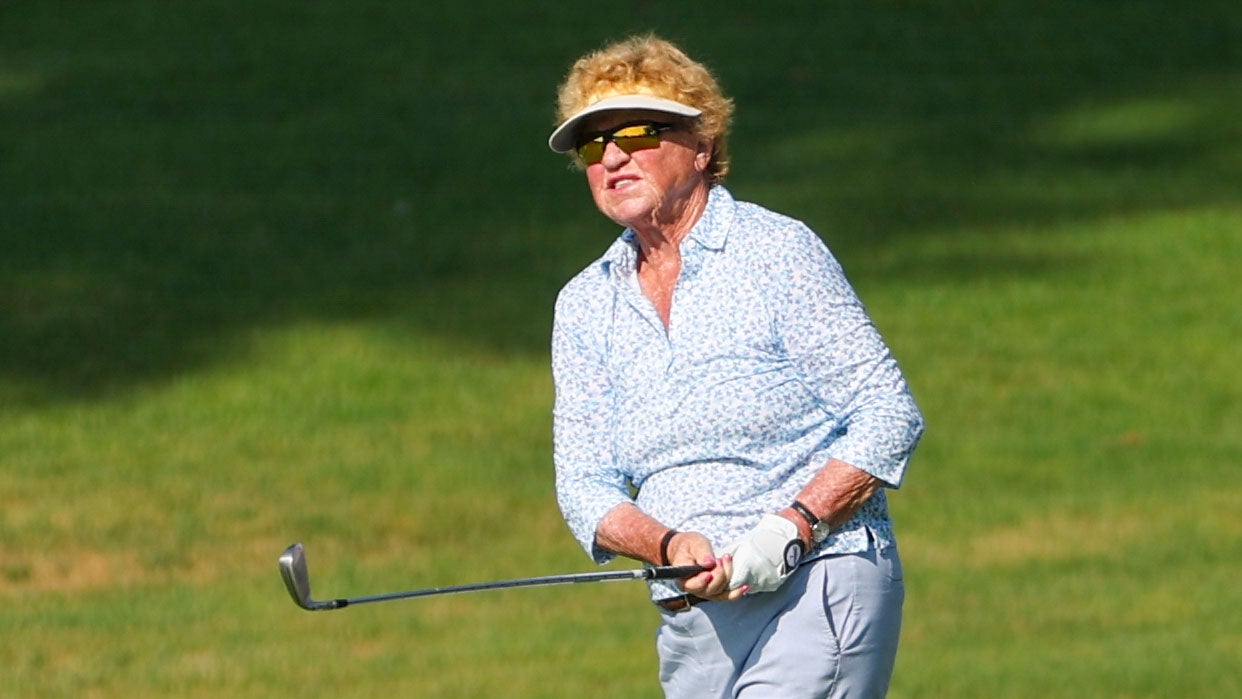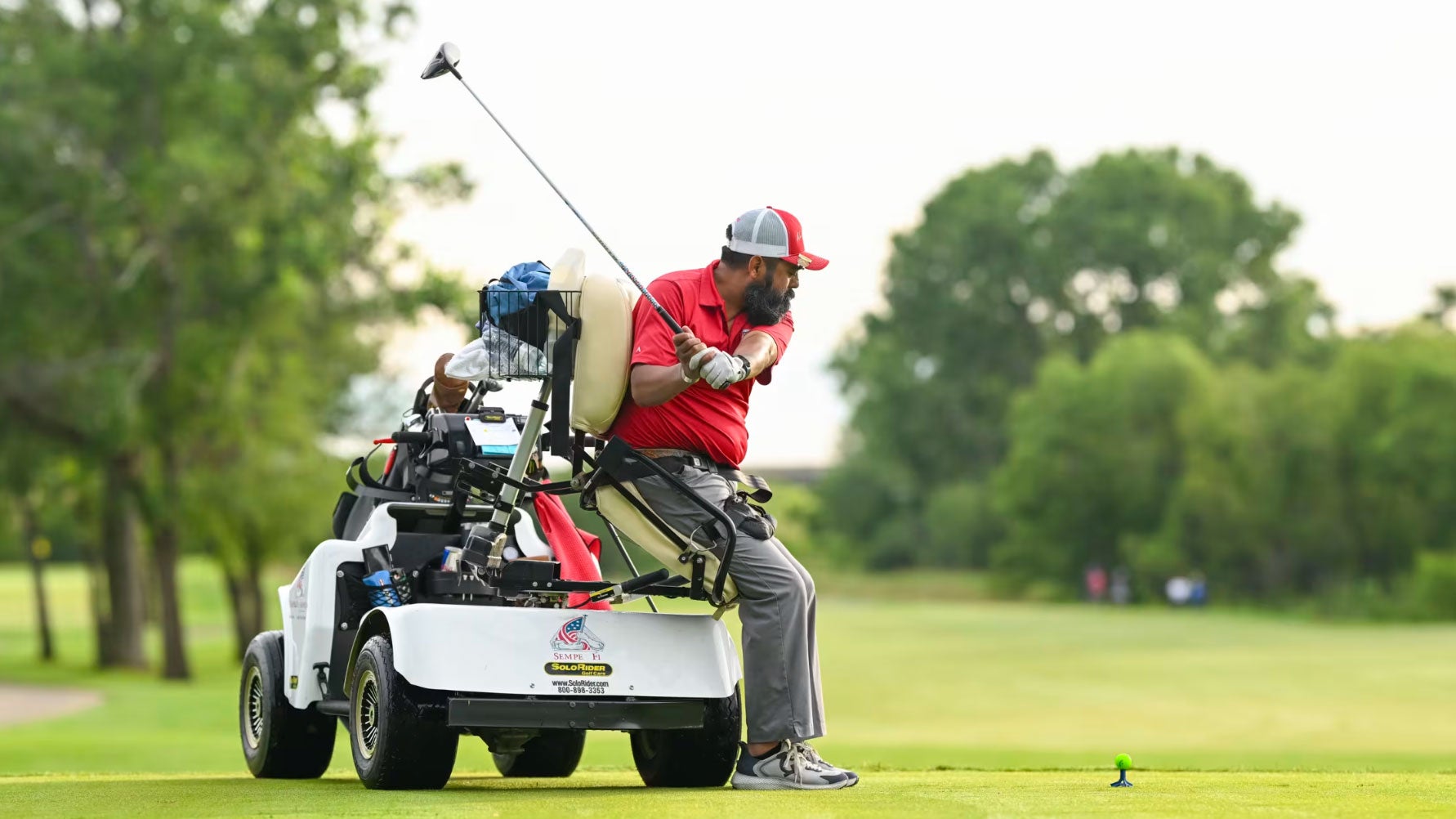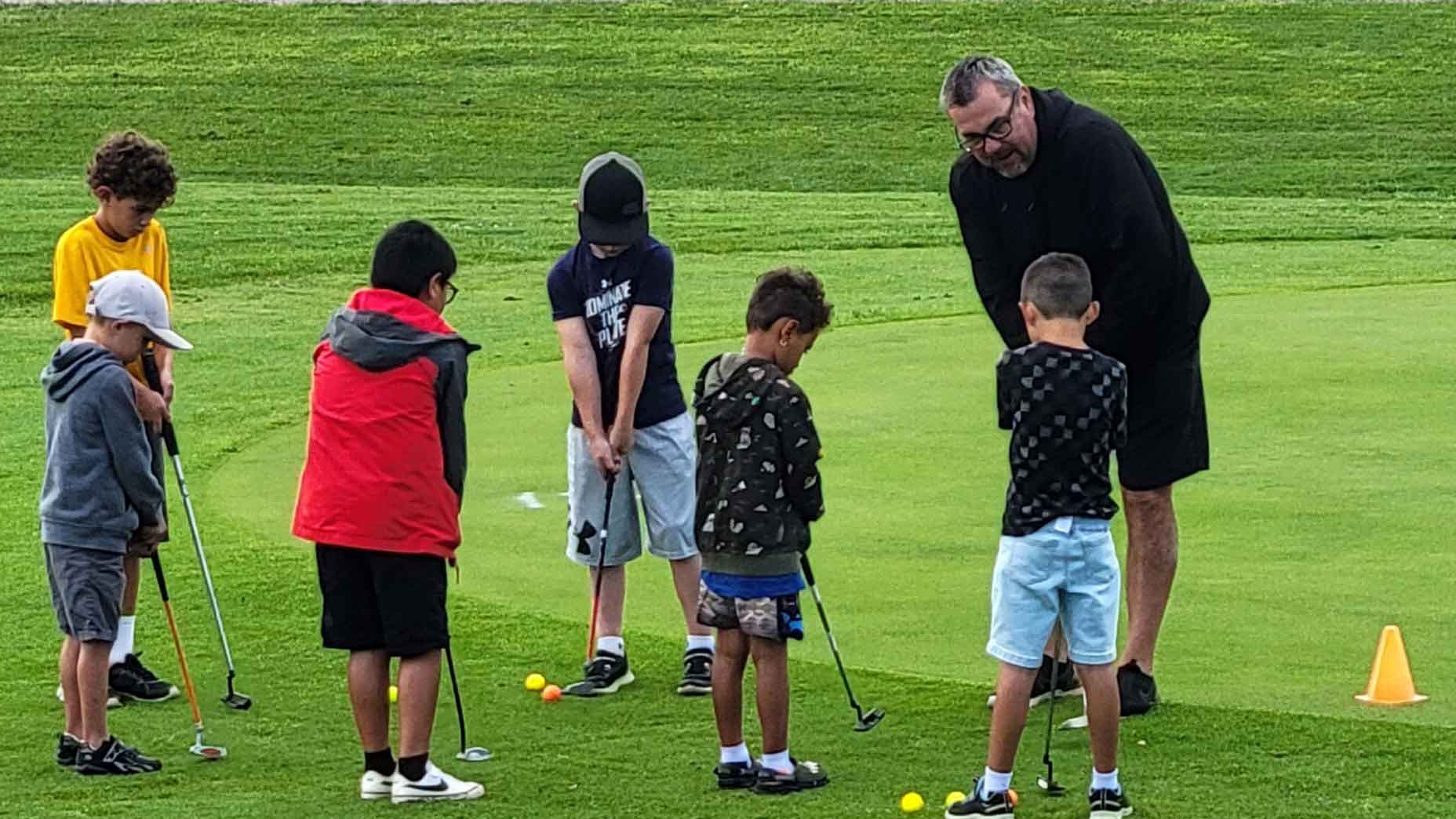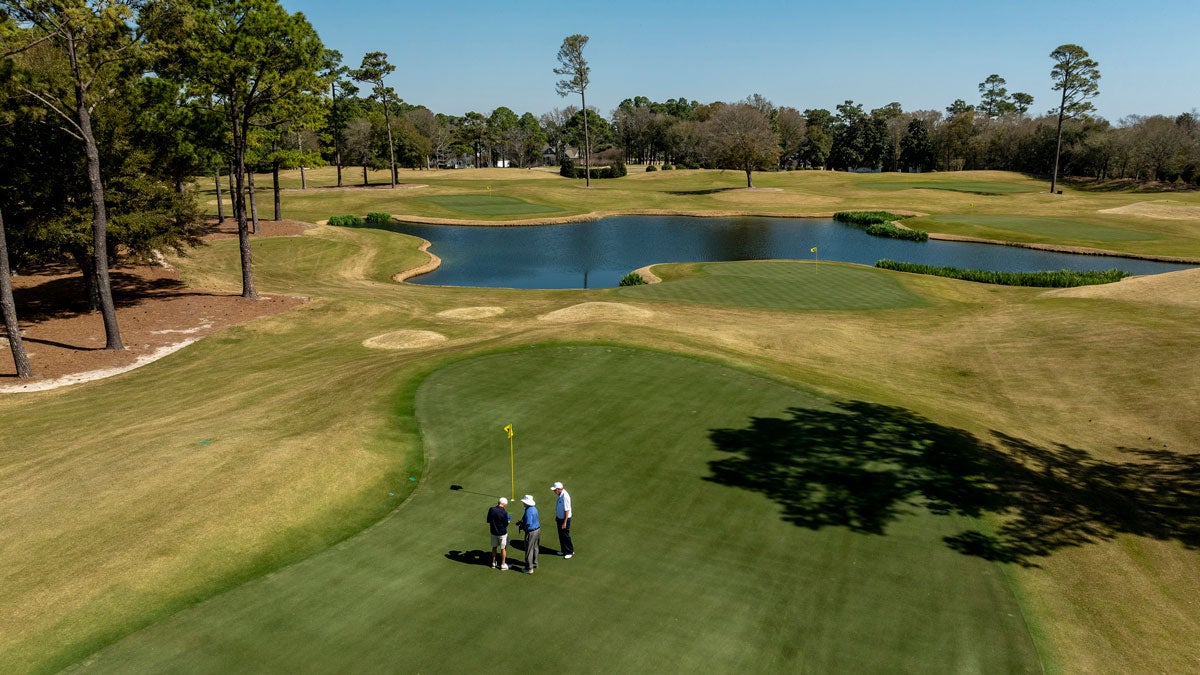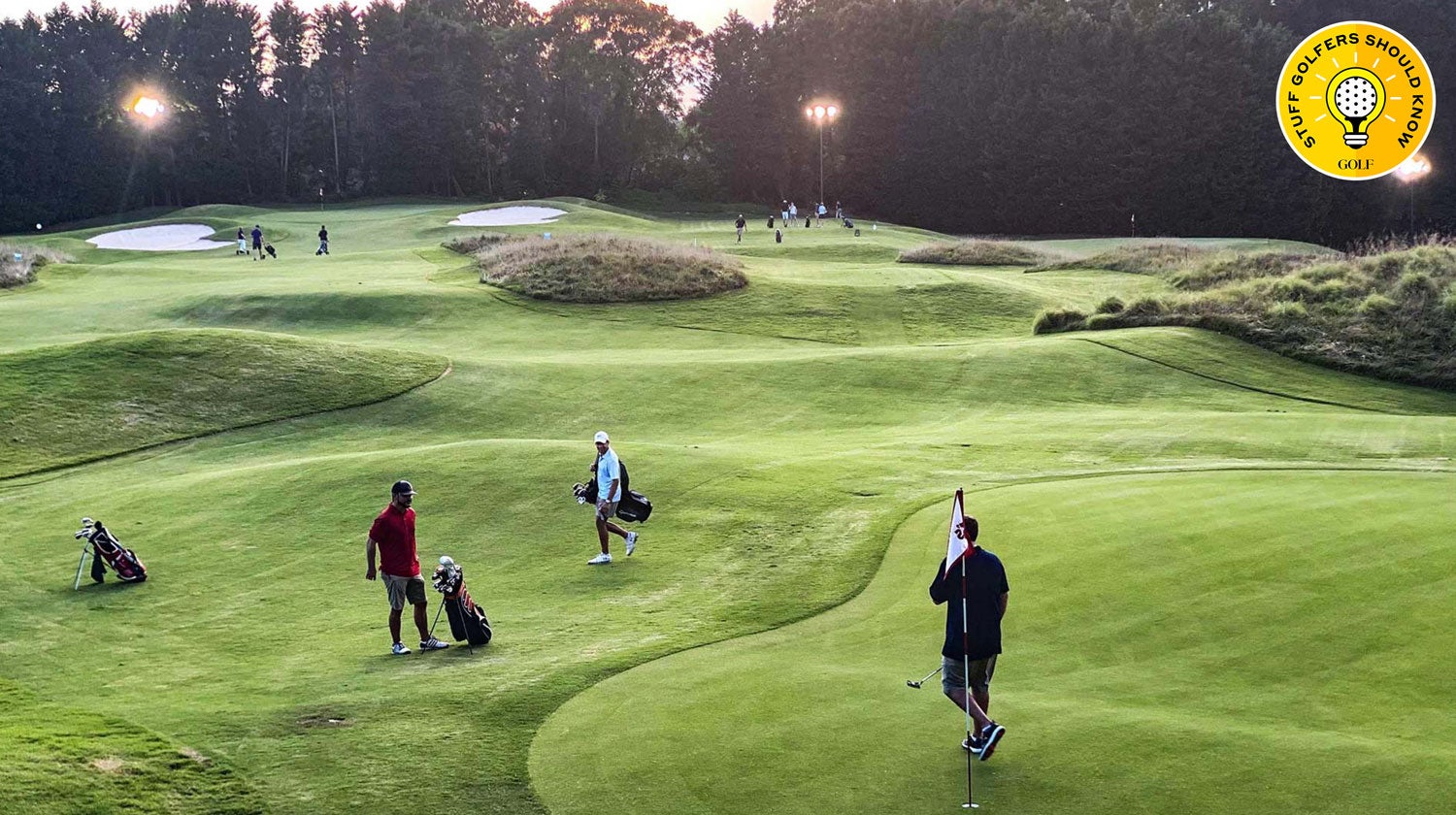The most intriguing field in men’s golf? It’s not on PGA Tour or LIV

Colin Prater, a high school biology teacher, will play in the U.S. Mid-Amateur later this week.
getty images
Remember when amateur golfers were amateur golfers?
You might not, because with the ratification of NIL in 2021, it’s been a minute. NIL, shorthand for “name, image and likeness,” permits college golfers (and all other college athletes, for that matter) to do what many observers felt was long overdue: monetize their talents through endorsement deals. Same goes for high school golfers, at least in some parts of the country. Take Mia Hammond, a standout high school sophomore golfer from Ohio who signed with a management company earlier this year. Because Ohio is not among the 33 states (plus Washington, D.C.) that allow high school athletes to collect NIL dollars, Hammond was forced to forfeit her high school eligibility.
The top echelon of the college game also is filled with amateurs who are still only technically amateurs. When Nick Dunlap, then a University of Alabama sophomore, won the U.S. Amateur last year, he was brandished in emblems from Adidas, TaylorMade and True Temper. When Rose Zhang won the Augusta National Women’s Amateur, she repped “Callaway” on her hat and “Adidas” on her skirt. Attend any of the game’s other elite amateur competitions — the North and South, the Sunnehanna, the Azalea, et al. — and you’ll encounter plenty more college-aged players with one foot planted in the am game and another extended toward the riches of the pro ranks.
All of which is why I’m a bit of a sucker for one of this week’s main events: the U.S. Mid-Amateur, the preeminent tournament for amateurs aged 25 and older for whom, as the USGA puts it, “the game is truly an avocation.” Call me old school, but in this age of college stars landing equipment and apparel deals and teens fearlessly ascending PGA Tour leaderboards, there’s something refreshing, quaint even, about the Mid-Am, where a schoolteacher might square off with a financial adviser, or a retired police officer with a Silicon Valley sharpie.
This isn’t to suggest that all Mid-Am participants are modern-day Bobby Jones, diligently rationing their time between the office and the range. But enough participants are that in the run-up to the event — this year’s edition, which kicks off Saturday, is at two Richmond, Va., area courses, Independence and Kinloch — I always look forward to scanning the USGA’s field breakdown. The 2024 analysis arrived in my inbox Wednesday by way of USGA comms team member Brian DePasquale, and it did not disappoint.
Scroll the lengthy dispatch and you’ll learn that the average age in the Mid-Am field is a 35.53; the oldest player, Michael McCoy, 61, is readying to play in his record 25th Mid-Am; and players are coming to Richmond from far and wide: 41 states and 22 countries are represented. But the most fun nuggets are toward the bottom, in the Player Notes section, which reveals that though the Mid-Am doesn’t have the best field in golf, it might well have the most interesting.

Take Mark Gardiner, 61, a retired Air Force chief master sergeant from Washington, Utah. Gardiner, who will be playing in his second Mid-Am, is a former member of both the Air Force and U.S. Armed Forces golf teams. He once played golf with a Ugandan general in Scotland (“He might have shot 120,” Gardiner once said, “but he was a joy to play with”), and if all of that’s not impressive enough, Gardiner also is a skilled enough bowler to have qualified for a Professional Bowlers Association event.
Speaking of two-sport athletes, Jack Barber will fill you with envy. You’ve probably already deduced that Barber is good at golf — he shot 65 at the Mid-Am’s Indiana qualifier — but the 27-year-old Californian’s tennis game is even better, or at least it was in a former life. Barber played on Stanford University’s tennis team when it was ranked second in the nation before he was driven off the court by wrist surgeries and transitioned to chasing around a different kind of ball.
Perhaps Bobby Massa, who is playing in his third Mid-Am, could have provided Barber rehab counsel. Massa, 36, is a Dallas-based personal trainer who works out of a gym run by former professional basketball player Melvin Sanders. Massa’s speciality: helping golfers develop speed. Another Mid-Am competitor’s livelihood also hinges on speed — just not the golf kind. Jeronimo Esteve, 43, of Puerto Rico and a veteran of 11 USGA championships, is VP of an auto group and also a race-car driving instructor.
Let’s see … who else do we have on the tee sheet? The mayor of South Greensburg, Pa. (Kevin Fajt); the founder of Tremont Sporting Company, which produces custom golf accessories (Christian Cavaliere); South Dakota State University’s men’s golf coach (Parker Edens); the owner of a kitchen and bathroom reno company (Drew Kittleson); an optometrist from Northern Ireland (Matthew McClean); and an oil and gas investment executive who played with Rickie Fowler at Oklahoma State (Trent Leon).
Shall we continue? We shall!
Also in the mix are a golf-course architect (Lukas Michel); certified public accountant with a Ph.D (Brett Patterson); high school history teacher (Todd White) and also a high school biology teacher who golf sickos might remember from this year’s U.S. Open (Colin Prater); real estate broker who was drafted by the San Diego Padres (Charles “Boomer” White); and registered nurse anesthetist (Trent Peterson).
Alas, there’s no Bobby Jones in the field, but there is a Ben Hogan, as in 43-year-old Ben Hogan of Wellington, Ohio, a retired police officer with a name that perks golfers’ ears. Hogan, who retired from the force but still volunteers at a local department, is playing in his second consecutive U.S. Mid-Am; a year ago at Sleepy Hollow, in New York’s Hudson Valley, he shot 77-83 and failed to advance to match play.
“People just assumed that I had to be really good at golf because of my name,” Hogan told me in an interview last year. “I was always having to validate my golf.”
Two straight Mid-Am appearances? Consider Hogan’s game validated.


